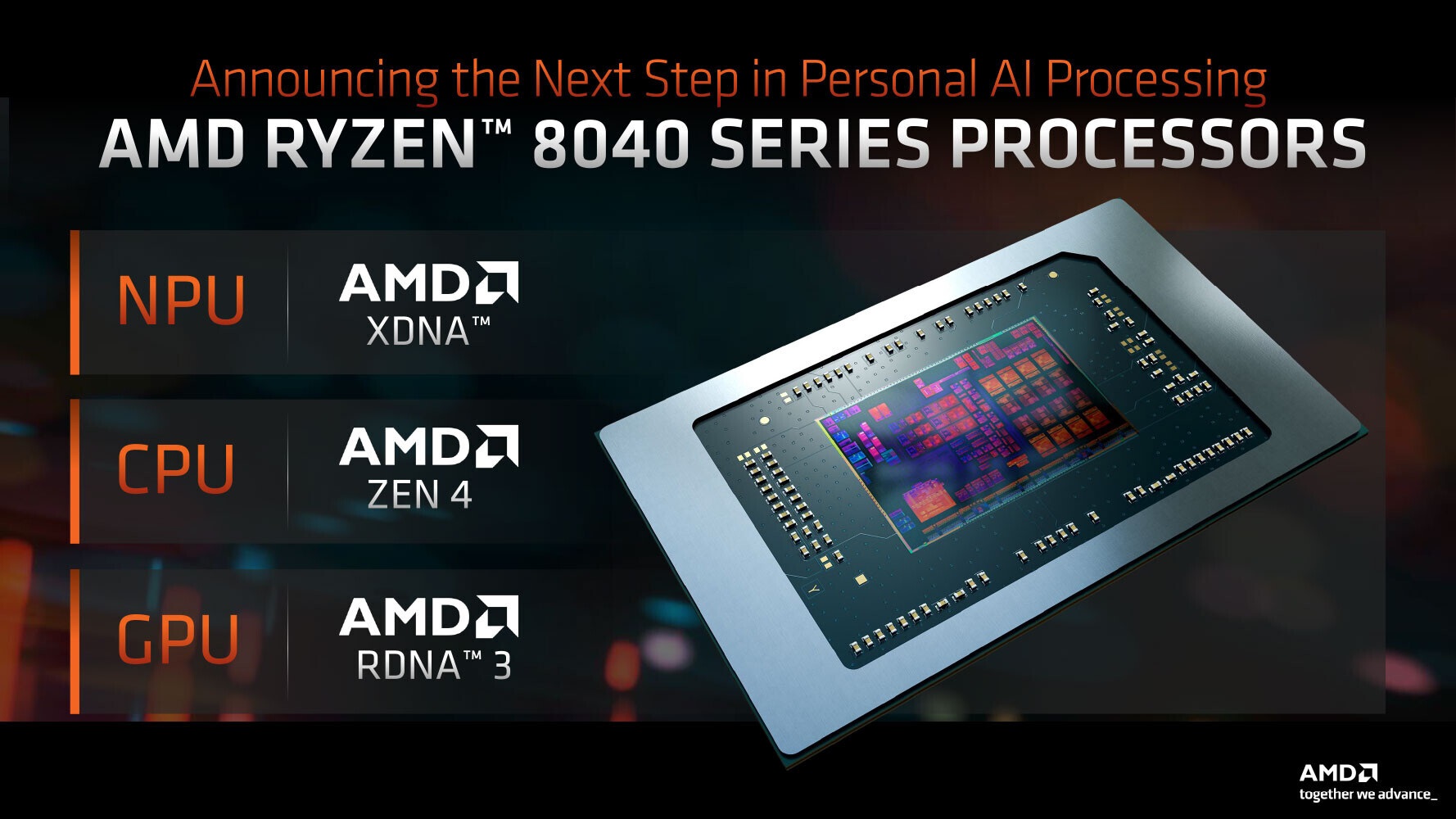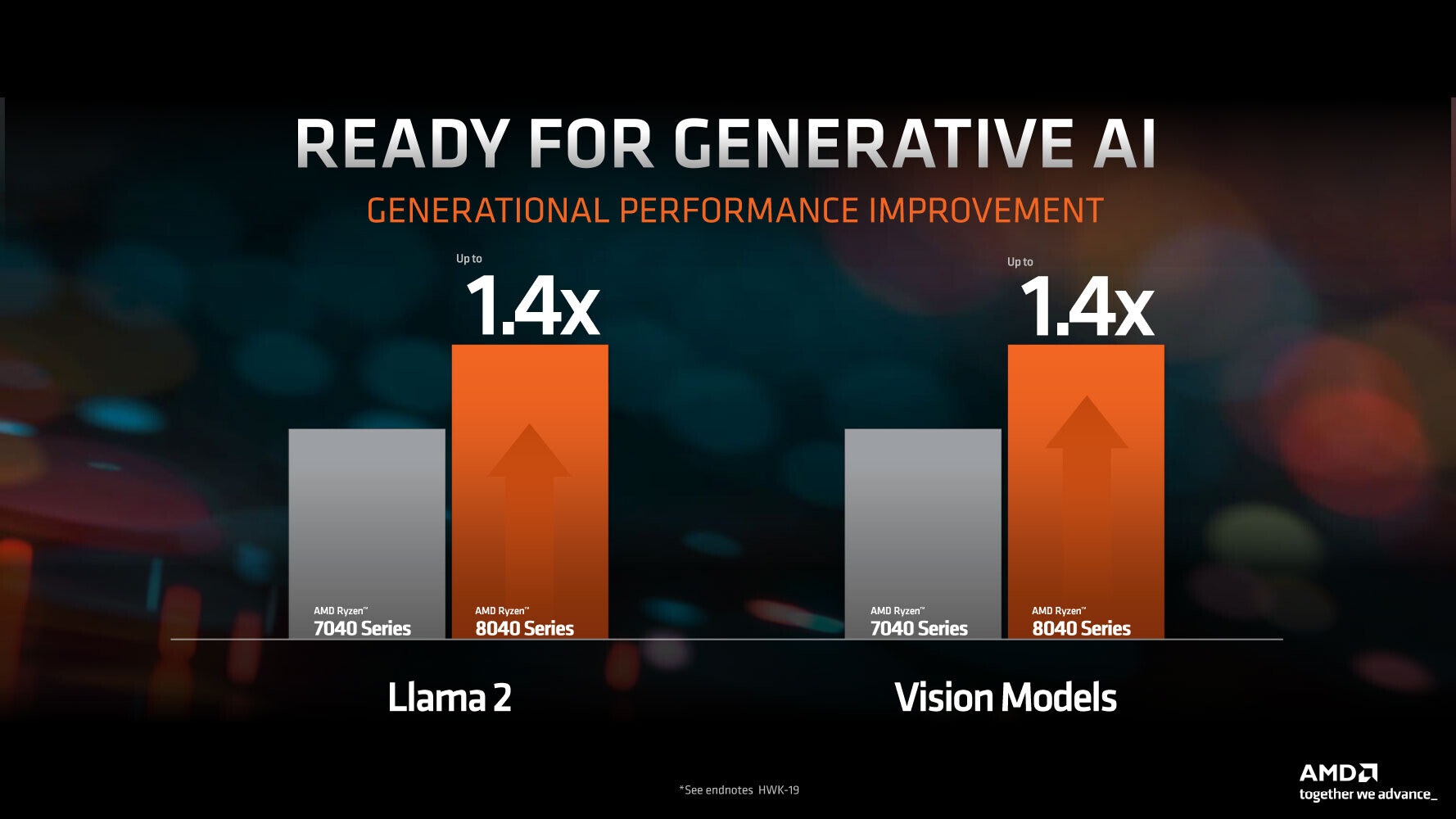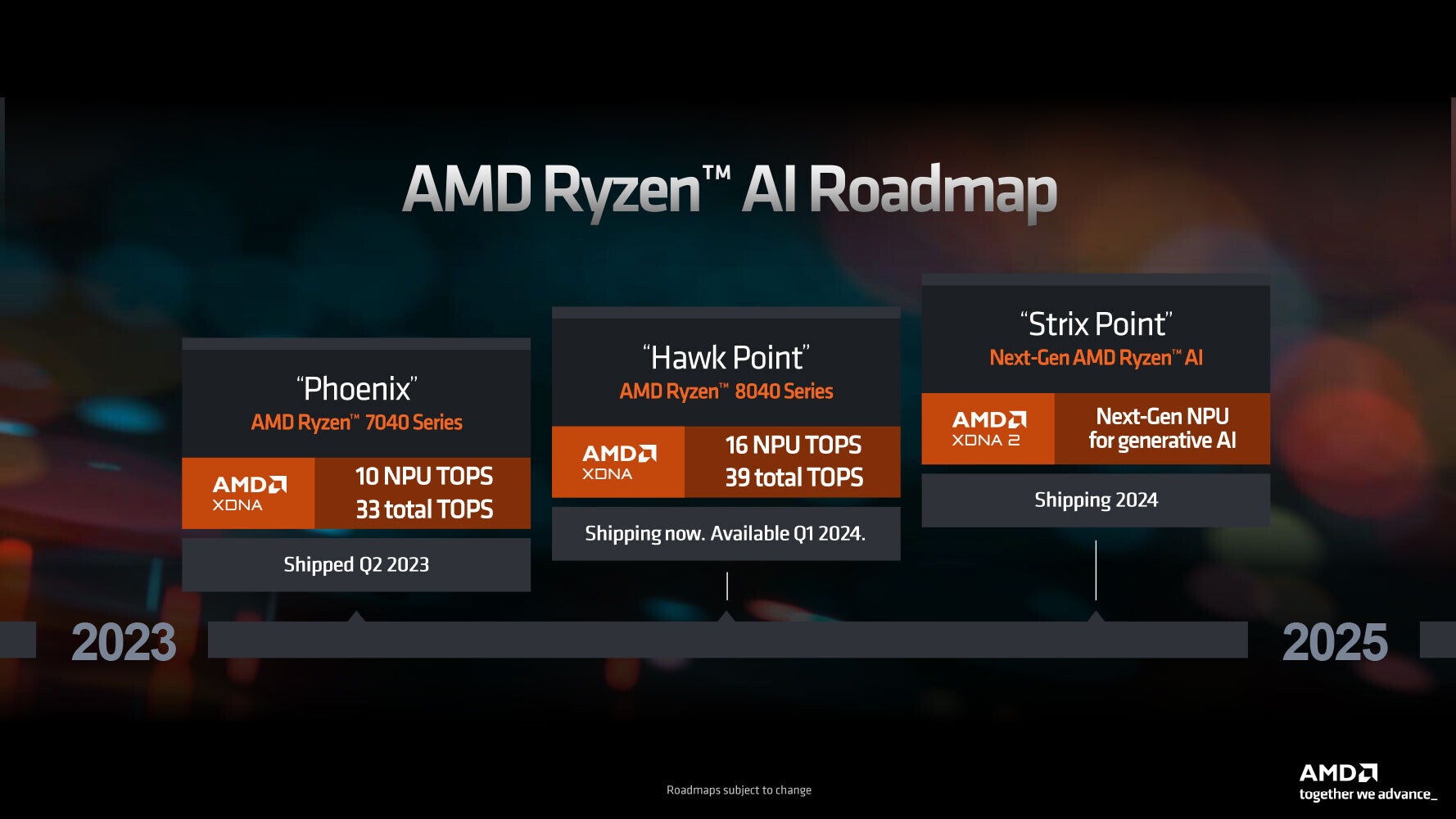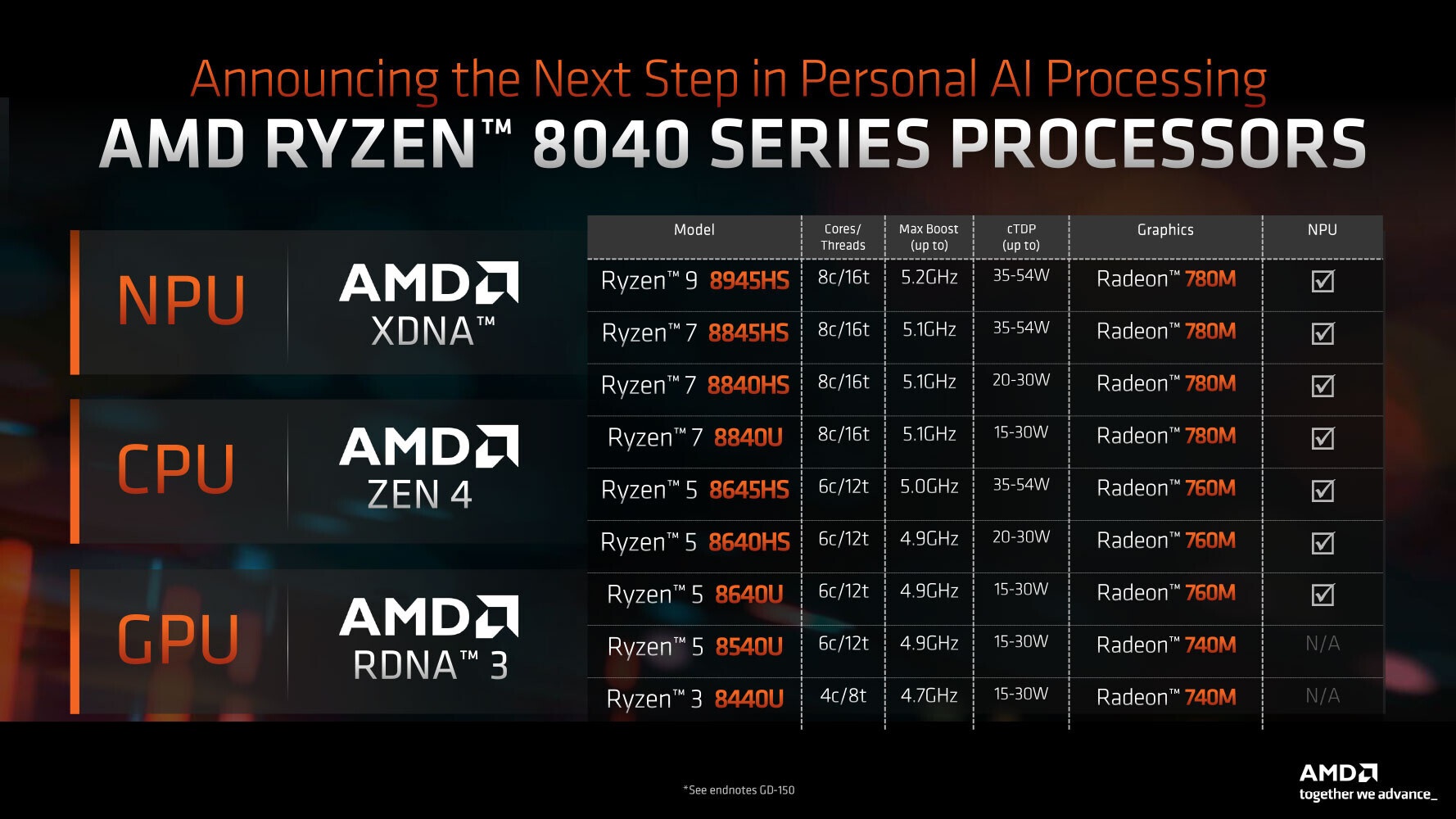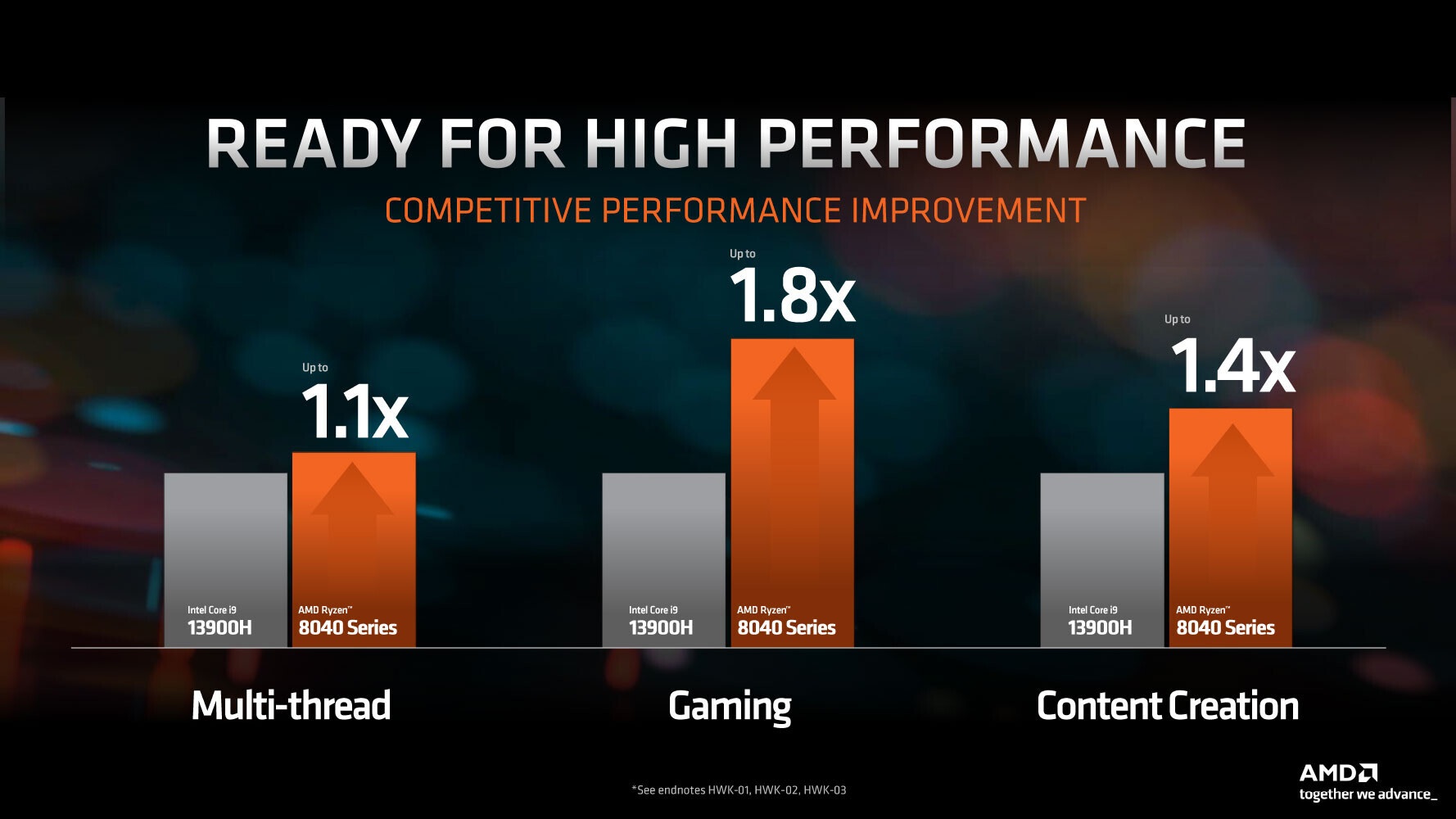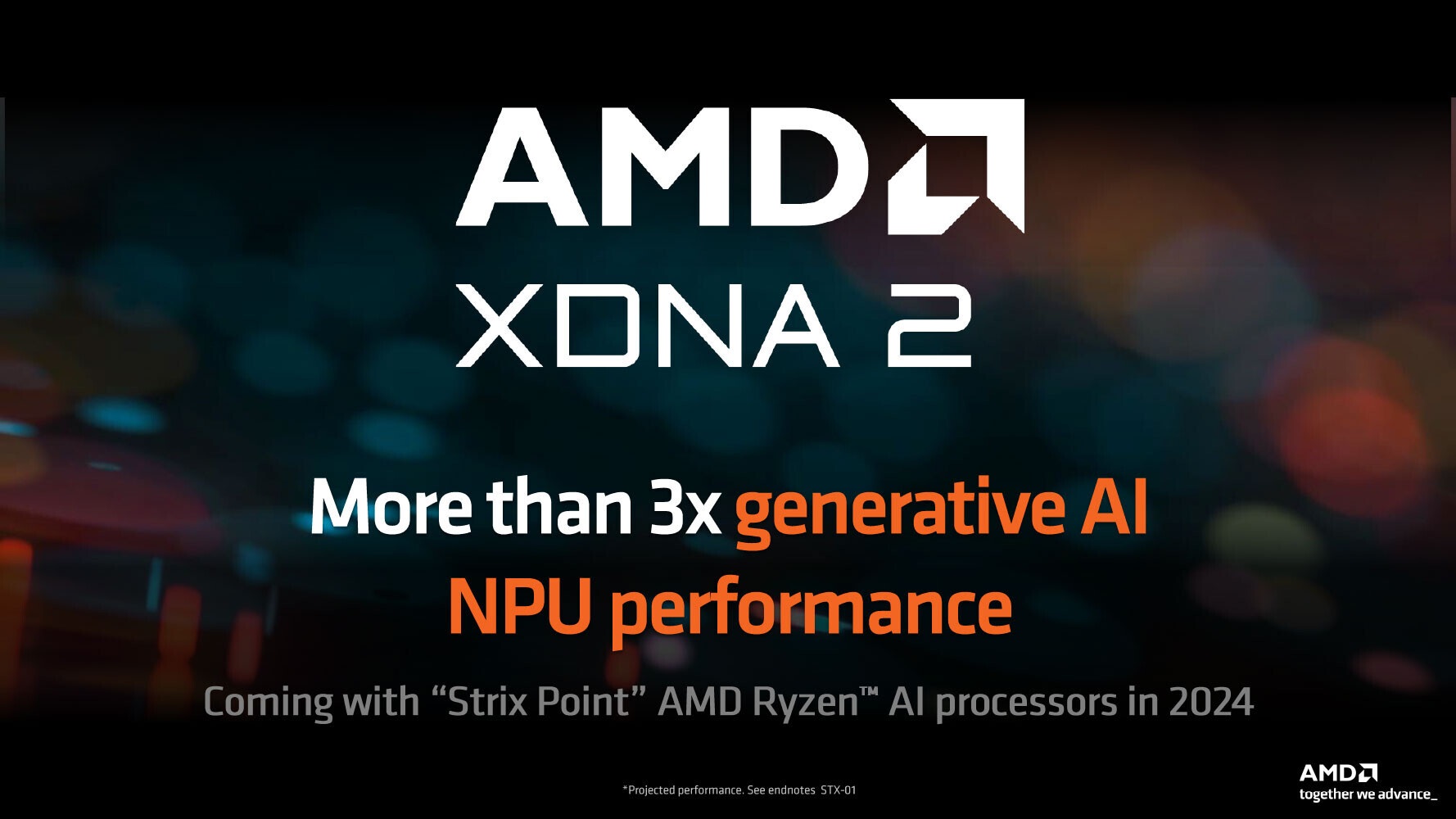AMD boosts AI performance with new Ryzen 8040 Hawk Point CPUs
AMD gives Ryzen AI a boost with Hawk Point and promises larger gains with XDNA 2
AMD is taking AI seriously, both within the ultra-high-end market and within the consumer space. With their new Ryzen 8040 series of Hawk Point CPUs, AMD has delivered an up to 1.6x boost in AI performance from their NPU (Neural Processing Unit). As AI becomes an increasingly important part of the PC ecosystem, these performance gains will become increasingly relevant to users.
For the most part, AMD’s new Ryzen 8040 series of Hawk Point processors are almost identical to the company’s Ryzen 7040 series of Phoenix processors. Both feature Zen 4 CPU cores, RDNA 3 graphics and an XDNA Neural Processing Unit (NPU). What changes with Hawk Point is AMD’s firmware and the clock speeds of their XDNA NPU.
With Hawk Point, AMD has managed to deliver significant performance uplifts from their first-generation NPU. Below we can see up to 40% performance gains in Llama 2 and Vision models. Note that both AMD’s Zen 4 CPU cores (with AVX-512 support) and RDNA 3 graphics (which features AI accelerators) both can contribute to AMD’s AI performance alongside their processors APU.
A glance at the AMD Ryzen AI Roadmap
AMD’s Hawk Point series of Ryzen AI processors will be available in early 2024. Later in the year, AMD plans to deliver next-generation AI performance with their planned “Strix Point” CPU. This CPU will feature a new XDNA 2 NPU, which will be significantly more powerful than the NPU found in Hawk Point.
Rumour has it that Windows 12 will be launched next year, and that the new OS will focus on AI enhancements. If this is true, AMD’s increased focus on AI will pay off.
AMD has confirmed plans to release Zen 5 Ryzen 8000 CPUs in 2024 with RDNA 3.5 graphics. This could mean that Strix Point will feature Zen 5 CPU cores, RDNA 3.5 graphics, and a XDNA 2.0 NPU.
For the most part, AMD’s Ryzen 8040 CPU lineup is the same as the Ryzen 7040 lineup that preceded it. Clock speeds, core counts, and GPU configurations are almost identical. That said, more CPUs in AMD’s new range feature XDNA NPUs. Beyond that, all the NPUs within these processors are more powerful than their last-generation counterparts.
AMD VS Intel
When compared with Intel’s current generation of mobile processors, AMD claims that they offer users more raw performance than their rival. With their Ryzen 8040 series APUs, AMD claims significant performance advantages. AMD claims up to a 10% increase in multi-threaded CPU performance, and up to 80% stronger gaming performance. For content creation, AMD claims up to a 40% performance advantage. How these new CPUs will compare with Intel’s upcoming Meteor Lake processors remains to be seen.
The Future of AMD Ryzen AI
Teasing XDNA 2, AMD promised a “more than 3x generative AI” boost with their upcoming “Strix Point” Ryzen AI processors. This performance claim compares their next-generation XDNA 2 NPU with the NPU within their Ryzen 7040 series of CPUs. Even if you factor in the boosted AI performance of AMD’s enhanced Ryzen 8040 series NPUs, XDNA 2 should still deliver a huge boost in generative AI performance.
Ai is becoming an increasingly important part of the PC ecosystem, and AMD are right to focus on the AI performance of their future processors. Moving forward, we can expect AI to be utilised in more and more applications.
You can join the discussion on AMD’s Ryzen 8040 series Hawk Point Mobile CPUs on the OC3D Forums.



